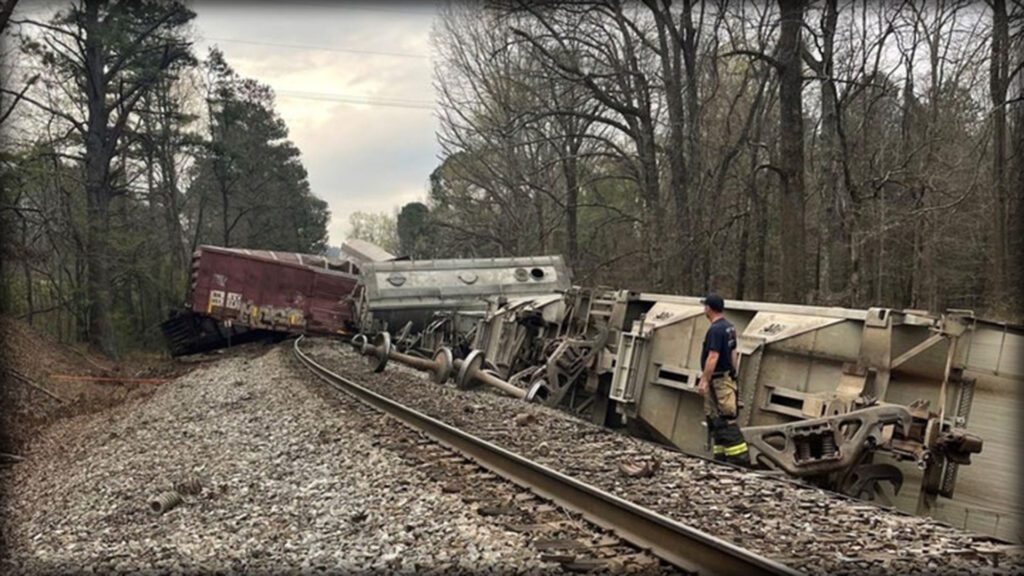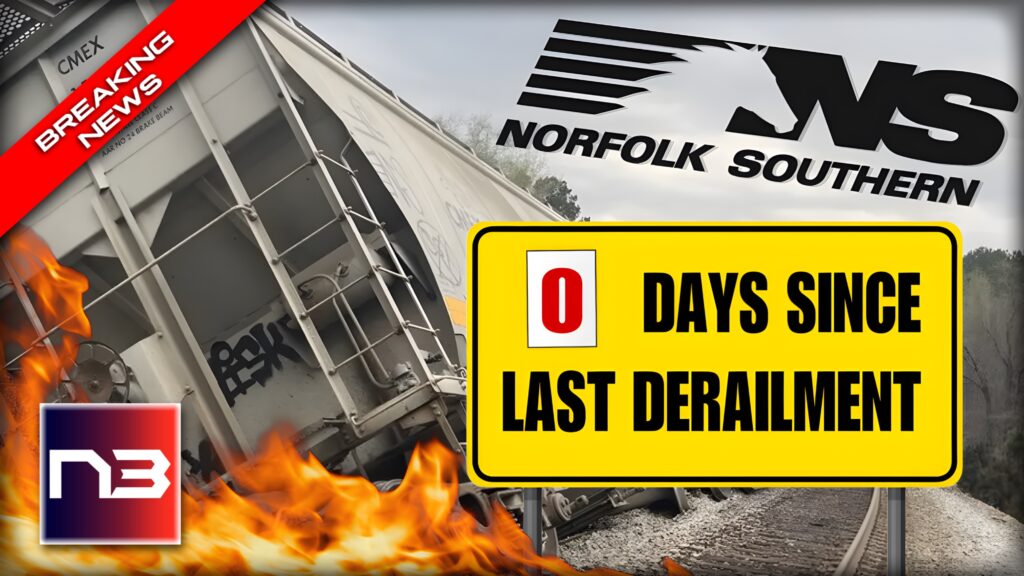Norfolk Southern train derailments have been a subject of controversy for quite some time and the company’s Chief Executive Officer just got grilled in Washington D.C. over it during his congressional testimony. And, moments before he testified, another Norfolk Southern train derailed, only making matters worse.
A Norfolk Southern train derailed in Alabama hours before Norfolk Southern CEO Alan Shaw appeared before Congress on Thursday.


According to the Calhoun County Emergency Management Agency, 37 train cars came off the tracks. Injuries were not reported from the derailment, and officials said hazardous materials were not at risk.
According to Norfolk Southern’s senior communications manager, Connor Spielmaker, two of the cars carried residue hazardous material, which means they previously carried hazardous material.
Meanwhile, in an appearance before Congress, Norfolk Southern CEO Alan Shaw apologized for the February 3rd derailment of the East Palestine, Ohio train carrying toxic materials that is still in the cleanup phase.
Norfolk Southern CEO Alan Shaw was on Capitol Hill apologizing for East Palestine when another one of his company's trains derailed in Alabama this morning.pic.twitter.com/S1yUZ7Nsll
— Citizen Free Press (@CitizenFreePres) March 9, 2023
One tense moment of Shaw hearing came from a line of questioning from Democrat Senator Ed Markey, who pressed the CEO on how the company plans to help the community of East Palestine after the derailment site is cleared.
Markey specifically asked Shaw about how the company plans to assist homeowners who may want to move out of the area but cannot, since home appraisals most likely will be decreased due to the negativity surrounding the town in connection to the derailment and release of toxic chemicals.
Sen. Ed Markey (D-MA): “A family that had a home worth $100,000 that is now worth $50,000 … will you compensate that family?”
— The Recount (@therecount) March 9, 2023
Norfolk Southern CEO Alan Shaw: “I’m committing to do what’s right.”
Markey: “That is the right thing to do … Norfolk Southern owes these people.” pic.twitter.com/7HUKDri56m
It is unacceptable that, just hours before CEO Alan Shaw appeared before Congress to discuss the catastrophic derailment of the East Palestine, Ohio, train in February, another Norfolk Southern train derailed in Alabama. Shaw apologized in his Congressional appearance and was pressed to explain how the company will help the affected community when the site is cleared, however, regardless of any apology or plans for restitution, it should never have been this way– Americans shouldn’t have to deal with these types of catastrophes, and the company must accept total responsibility and accountability.
Let’s continue this conversation, in the comments below.



